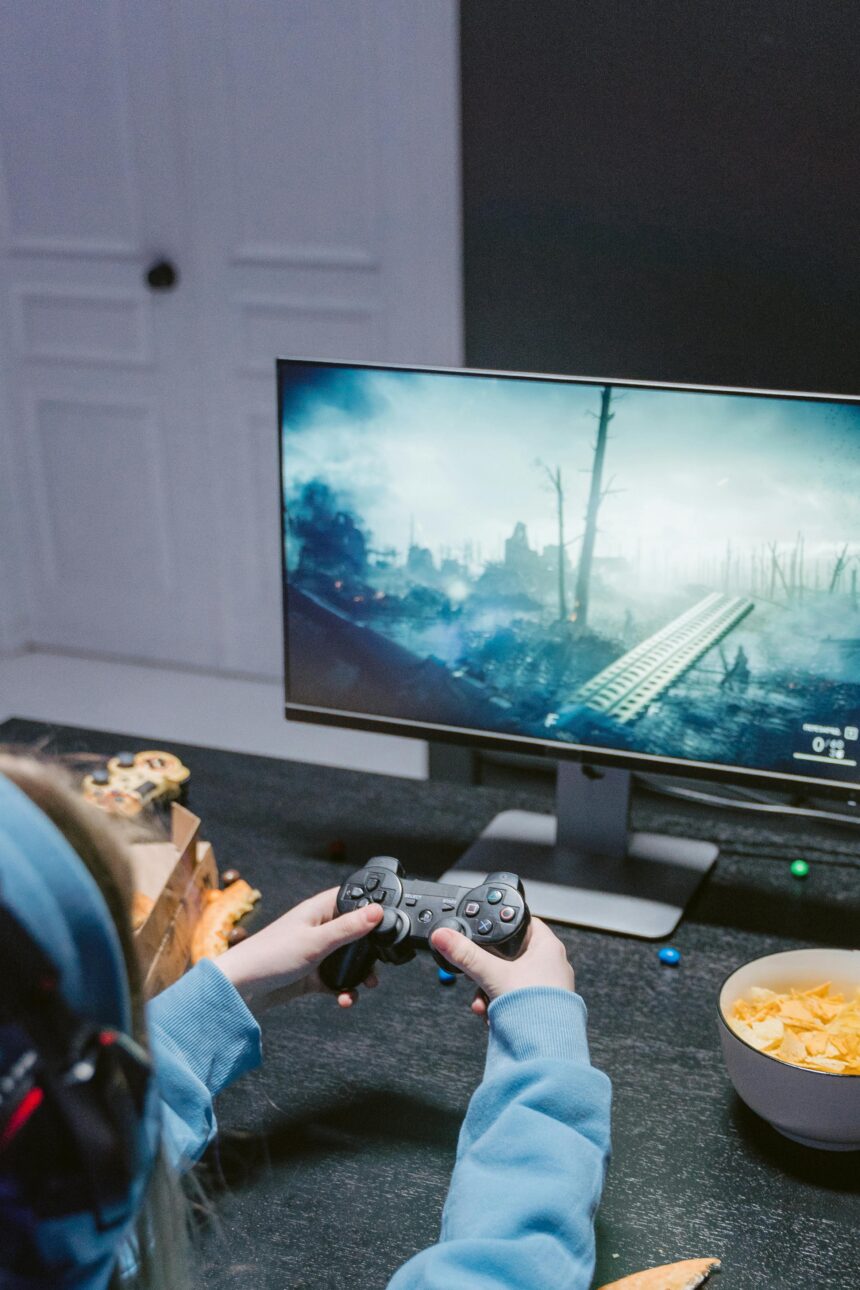In recent years, there’s been growing interest in the intersection between gaming and mental health. Among the various types of games, PC gaming has emerged as a particularly influential force in offering therapeutic benefits, including the potential to alleviate symptoms of depression. This blog post delves into how PC gaming can act as a powerful tool in combating depression, drawing from psychological research, personal experiences, and emerging trends.
The Connection Between Gaming and Mental Health
Gaming has evolved significantly over the past few decades. No longer just a pastime, it has become a dynamic medium that can offer rich, immersive experiences. While much of the early conversation around gaming focused on potential negatives, such as addiction or increased aggression, there’s now a growing body of research highlighting its positive impacts on mental health.
Depression, a complex mental health condition characterized by persistent feelings of sadness, hopelessness, and a lack of interest in activities, can be particularly challenging to manage. Traditional treatments often include therapy and medication, but emerging research suggests that gaming, especially PC gaming, can offer valuable supplementary benefits.
Immersion and Distraction: The Escape from Reality
One of the most immediate ways PC games help combat depression is by providing a form of escape. Depression often manifests as a relentless loop of negative thoughts and feelings, which can be difficult to break. PC games offer an immersive environment where players can temporarily step away from their daily struggles and immerse themselves in different realities.
Virtual Worlds and Role-Playing
Games such as “The Elder Scrolls V: Skyrim” and “World of Warcraft” create expansive worlds where players can explore, achieve goals, and interact with others. These virtual worlds provide a form of distraction from the challenges of real life. They allow individuals to engage in activities that are both enjoyable and rewarding, which can help break the cycle of negative thinking associated with depression.
Mindfulness Through Gaming
Some games are designed with mindfulness and relaxation in mind. Titles like “Stardew Valley” and “Animal Crossing: New Horizons” offer peaceful environments and low-pressure tasks that encourage players to focus on the present moment. This type of gameplay can provide a calming experience, helping to reduce symptoms of anxiety and depression by fostering a sense of accomplishment and relaxation.
Social Interaction: Building Connections in Virtual Spaces
Loneliness and social isolation are common issues for people struggling with depression. The social aspect of PC gaming can play a crucial role in alleviating these feelings.
Online Communities and Support
PC games often come with vibrant online communities where players can connect with others who share similar interests. Games like “League of Legends” and “Overwatch” not only offer opportunities for competitive play but also for collaboration and camaraderie. Engaging in these communities can provide a sense of belonging and support, which can be especially beneficial for individuals who feel isolated.
Collaborative Play and Teamwork
Multiplayer games require teamwork and communication, skills that can be highly beneficial for individuals experiencing depression. Working together towards a common goal can foster a sense of purpose and accomplishment. Moreover, the friendships formed in these virtual spaces can offer emotional support and reduce feelings of loneliness.
Cognitive Benefits: Boosting Mental Resilience
Playing PC games can also have cognitive benefits that contribute to mental well-being. These benefits are often linked to the mental challenges and problem-solving elements inherent in many games.
Enhancing Problem-Solving Skills
Many PC games involve complex problem-solving, strategic planning, and critical thinking. Engaging in these activities can help improve cognitive functions such as memory, attention, and executive function. For individuals with depression, these cognitive enhancements can be empowering, providing a sense of control and achievement.
Building Resilience and Coping Strategies
Games often present players with challenges and obstacles that require persistence and adaptation to overcome. This can help players build resilience and develop coping strategies that are applicable in real life. The sense of accomplishment gained from overcoming in-game challenges can translate into increased confidence and motivation in other areas of life.
Emotional Regulation: Managing Feelings Through Gameplay
PC gaming can also aid in emotional regulation, an important aspect of managing depression. The interactive nature of games provides a unique platform for exploring and expressing emotions.
Experiencing and Managing Emotions
Games with rich narratives, such as “The Last of Us” or “Life is Strange,” allow players to explore complex emotional experiences in a controlled environment. This can provide insights into one’s own feelings and help in managing emotions more effectively. The act of engaging with these narratives can also offer a form of emotional release and catharsis.
Creating a Sense of Control
Many games allow players to make decisions that impact the outcome of the game. This sense of agency can be particularly valuable for individuals with depression, as it provides a feeling of control that might be lacking in their everyday lives. The ability to influence the game environment and see tangible results from their actions can be empowering and uplifting.
Physical Benefits: Healthier Habits Through Gaming
While the sedentary nature of gaming is often criticized, there are ways that PC gaming can encourage healthier habits that contribute to overall well-being.
Incorporating Movement and Exercise
Certain PC games, particularly those that integrate virtual reality (VR) or augmented reality (AR), encourage physical movement. Games like “Beat Saber” and “Ring Fit Adventure” combine physical activity with gameplay, which can help counteract the sedentary lifestyle often associated with gaming. Regular physical activity has well-documented benefits for mental health, including reducing symptoms of depression.
Encouraging Routine and Structure
For individuals with depression, establishing a daily routine can be challenging. Games with structured goals and daily tasks, such as “Animal Crossing” or “The Sims,” can help provide a sense of routine and purpose. The regular engagement with these games can encourage players to establish and maintain a daily schedule, which can be beneficial for managing depression.
Gaming as a Supplement to Traditional Treatments
It’s important to note that while PC gaming can offer therapeutic benefits, it should not be viewed as a replacement for traditional mental health treatments. Instead, it should be seen as a complementary tool that can enhance overall well-being.
Integrating Gaming with Therapy
For some individuals, combining gaming with traditional therapy can be a powerful approach. Therapists can work with clients to incorporate gaming strategies into their treatment plans, using games to reinforce therapeutic goals and provide additional support. For example, a therapist might suggest mindfulness games to help with relaxation or problem-solving games to build cognitive skills.
Setting Healthy Boundaries
It’s crucial to maintain a balanced approach to gaming. Excessive gaming, like any activity, can have negative effects, including increased isolation or disrupted sleep patterns. Setting healthy boundaries and ensuring that gaming is part of a balanced lifestyle is essential for maximizing its benefits.
Conclusion: The Promise of PC Gaming in Mental Health
PC gaming, with its immersive environments, social interactions, cognitive challenges, and emotional engagement, holds significant promise as a tool for alleviating depression. While it’s not a cure-all, it can provide valuable support and complement traditional mental health treatments. As research continues to explore the nuances of gaming and mental health, the potential for PC games to positively impact well-being becomes increasingly clear.
For those struggling with depression, exploring PC gaming as a form of therapeutic support might offer a new avenue for relief. By embracing the benefits of virtual worlds and interactive experiences, individuals can find moments of joy, connection, and empowerment, contributing to a more holistic approach to mental health and well-being.








